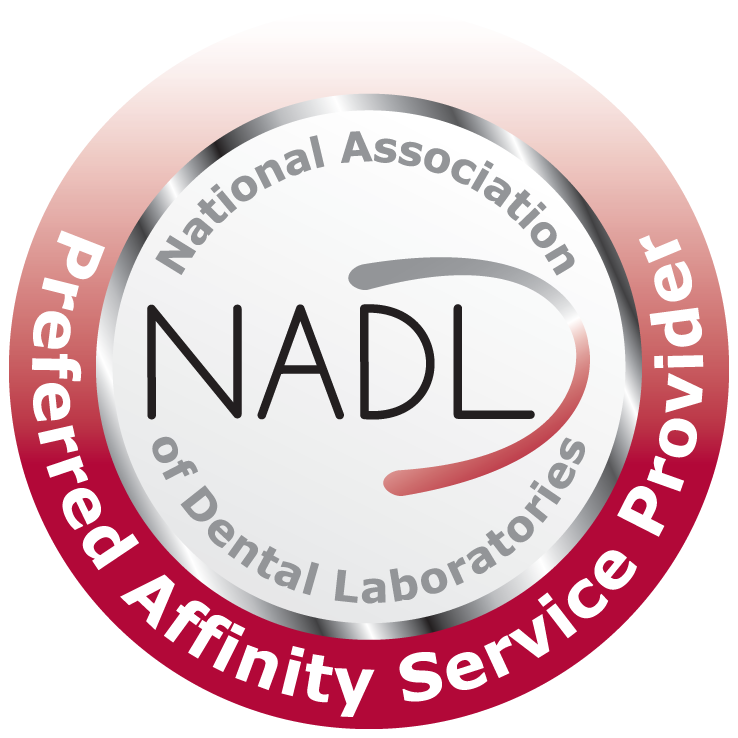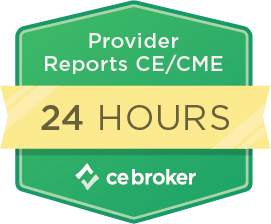Dental Lab Quality System FAQ’s
Get answers to your dental compliance questions concerning quality systems in the dental lab.JTNDJTIxLS1IdWJTcG90JTIwQ2FsbC10by1BY3Rpb24lMjBDb2RlJTIwLS0lM0UlM0NzcGFuJTIwY2xhc3MlM0QlMjJocy1jdGEtd3JhcHBlciUyMiUyMGlkJTNEJTIyaHMtY3RhLXdyYXBwZXItM2YzNjQ0OTQtYWU2OS00ZmFhLWEwODAtMDM1ZWQ1OWEyYWQzJTIyJTNFJTNDc3BhbiUyMGNsYXNzJTNEJTIyaHMtY3RhLW5vZGUlMjBocy1jdGEtM2YzNjQ0OTQtYWU2OS00ZmFhLWEwODAtMDM1ZWQ1OWEyYWQzJTIyJTIwaWQlM0QlMjJocy1jdGEtM2YzNjQ0OTQtYWU2OS00ZmFhLWEwODAtMDM1ZWQ1OWEyYWQzJTIyJTNFJTNDJTIxLS0lNUJpZiUyMGx0ZSUyMElFJTIwOCU1RCUzRSUzQ2RpdiUyMGlkJTNEJTIyaHMtY3RhLWllLWVsZW1lbnQlMjIlM0UlM0MlMkZkaXYlM0UlM0MlMjElNUJlbmRpZiU1RC0tJTNFJTNDYSUyMGhyZWYlM0QlMjJodHRwcyUzQSUyRiUyRmN0YS1yZWRpcmVjdC5odWJzcG90LmNvbSUyRmN0YSUyRnJlZGlyZWN0JTJGMjQyMjQwMSUyRjNmMzY0NDk0LWFlNjktNGZhYS1hMDgwLTAzNWVkNTlhMmFkMyUyMiUyMCUyMHRhcmdldCUzRCUyMl9ibGFuayUyMiUyMCUzRSUzQ2ltZyUyMGNsYXNzJTNEJTIyaHMtY3RhLWltZyUyMiUyMGlkJTNEJTIyaHMtY3RhLWltZy0zZjM2NDQ5NC1hZTY5LTRmYWEtYTA4MC0wMzVlZDU5YTJhZDMlMjIlMjBzdHlsZSUzRCUyMmJvcmRlci13aWR0aCUzQTBweCUzQiUyMiUyMHNyYyUzRCUyMmh0dHBzJTNBJTJGJTJGbm8tY2FjaGUuaHVic3BvdC5jb20lMkZjdGElMkZkZWZhdWx0JTJGMjQyMjQwMSUyRjNmMzY0NDk0LWFlNjktNGZhYS1hMDgwLTAzNWVkNTlhMmFkMy5wbmclMjIlMjAlMjBhbHQlM0QlMjJIb3clMjB0byUyMFN0YXklMjBvbiUyMFRvcCUyMG9mJTIwRkRBJTIwRGVudGFsJTIwUmVndWxhdGlvbnMlMjIlMkYlM0UlM0MlMkZhJTNFJTNDJTJGc3BhbiUzRSUzQ3NjcmlwdCUyMGNoYXJzZXQlM0QlMjJ1dGYtOCUyMiUyMHNyYyUzRCUyMmh0dHBzJTNBJTJGJTJGanMuaHNjdGEubmV0JTJGY3RhJTJGY3VycmVudC5qcyUyMiUzRSUzQyUyRnNjcmlwdCUzRSUzQ3NjcmlwdCUyMHR5cGUlM0QlMjJ0ZXh0JTJGamF2YXNjcmlwdCUyMiUzRSUyMGhic3B0LmN0YS5sb2FkJTI4MjQyMjQwMSUyQyUyMCUyNzNmMzY0NDk0LWFlNjktNGZhYS1hMDgwLTAzNWVkNTlhMmFkMyUyNyUyQyUyMCU3QiU3RCUyOSUzQiUyMCUzQyUyRnNjcmlwdCUzRSUzQyUyRnNwYW4lM0UlM0MlMjEtLSUyMGVuZCUyMEh1YlNwb3QlMjBDYWxsLXRvLUFjdGlvbiUyMENvZGUlMjAtLSUzRQ==A 510(k) is the section of Food Drug and Cosmetic Act that requires manufacturers to notify FDA of their intent to market a medical device. Manufacturers must submit a 510(k) and the FDA issues an order stating that the device may be marketed. Only materials that are compliant with FDA regulations may be used. Porcelain, ingots, zirconia, acrylic, denture teeth, sleep apnea appliances, implant abutments (both stock and custom), and sequential aligners are Class II devices and require a 510(k). Dental labs are only required to have a 510(k) if they want to manufacture any of these items listed. Read more about this here. Take online course to learn more:
3 Ways Your Product Offerings Can Trigger FDA’s Attention Facilities that are registered with FDA will be inspected at some point in time. A company may still be inspected even if not registered based on their marketing content on websites and social media. Take online course to learn more:
3 Ways Your Product Offerings Can Trigger FDA’s Attention A remake can be a complaint, but other issues should also be logged in as complaints such as, any negative comments regarding the product and service in general including delivery issues. All complaints require corrective action with the corrective action being documented. Complaints need to be reviewed on a scheduled basis with corrective action taken noted. Take online course to learn more:
Using Your Lab Quality System to Reduce External and Internal Remakes and Improving Your Quality Output The lab must have a formal system in place for the evaluation of all vendors, suppliers, and subcontractors. These evaluation forms must be reviewed initially upon receipt to determine if the supplier/subcontractor meets the lab’s requirements. After that initial evaluation, then we recommend that a formal review be conducted again each two years.You must be able to produce a list of all your suppliers/subcontractors and the names of the materials you purchase from them. The list should show why you do business with the supplier/subcontractor. Showing “historical relationship” is not an adequate reason for doing business with a supplier or subcontractor. Take online course to learn more:
How to Navigate Public Info on FDA’s Website At a minimum you should have an employment application or resume showing the work experience of each worker. Tracking internal reworks to technicians will provide a system for determining when additional training is required. All training whether in-house or with outside resources must be documented.Each year you should conduct an internal audit. The audit can be performed by your own staff, as long as they are independent of the area being audited. It is recommended to hire a qualified auditor, such as SafeLink Consulting, to conduct the audit. At a minimum of annually, you should conduct a Management Review Meeting. In that meeting, the quality team, which must include the Lab Owner/President/CEO, should review all of the quality records to determine the effectiveness of the quality system. Take online course to learn more:
The Basics of FDA’s Title 21 Course and FDA – Auditing Series – Basics of Internal Auditing, Components of the Audit Process, and Documenting the AuditAt a minimum you should track the lot numbers of patient contact materials. This would include porcelain, acrylic, denture teeth, implants, zirconia blocks/cylinders, alloys. You should test your system to ensure that you can track the lot numbers by each case. The reason for this is that if there is a recall of any of these materials, you must be able to determine which dentists need to be notified so they can notify the appropriate patients.You must qualify your subcontractors by having them inform you in writing that they are tracking the lot numbers and can relay that information to you should there be a recall. FDA may ask you if you have visited the facility where your subcontracted work is manufactured. This is a part of your due diligence in determining, whether or not to do business with a subcontractor. If that subcontractor is in another country, then it is just as important for you to do your due diligence prior to accepting work from that subcontractor.If you market or manufacture dental devices that are regulated by FDA, then you must comply with the appropriate parts of FDA Quality System Regulation. Even a one-person dental lab would have to have a documented and effective quality system. See FDA’s website for the Quality System Regulation www.fda.govAll documents that are a part of your service to your dental clients and are a part of your quality system require control and control numbers. This would include your prescription, work tickets, invoices, purchase order forms, standard operating procedures, work instructions, training documentation, equipment maintenance records, facility cleaning records, etc.http://www.accessdata.fda.gov/scripts/cdrh/cfdocs/cfRL/rl.cfmHealthcare USA
http://www.healthguideusa.org/dental_license_lookup.htmAt this time, all dental labs do not have to register with FDA, however, depending on your business model you may have products or activities that would require you to register. If you are an initial importer or repackage/re-label outsourced work from a foreign lab, then you are required to register. If you manufacture sleep apnea devices, snore guards, custom implant abutments, or sequential aligners you are required to register. This is a very complex issue so it’s best to contact us to discuss your specific requirements. Take online course to learn more:
Dental Lab FDA Registration Made Easy and How to Navigate Public Info on FDA’s Website
Get In Touch



